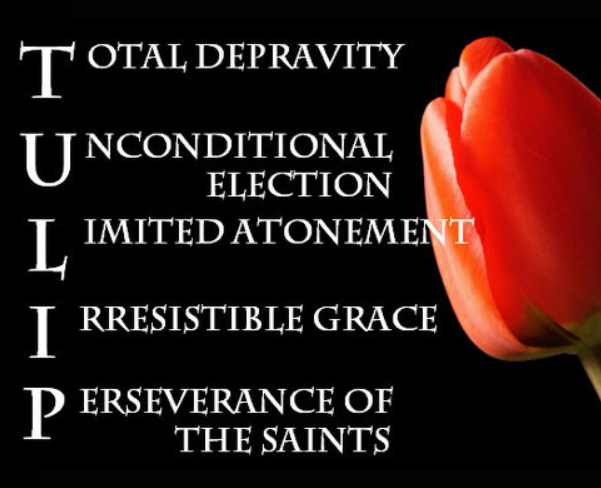Well, there are some points in Calvinism that some people who label themselves "Calvinist" don't accept. However, for me, one can't consider himself a Calvinist if one does not accept the five points. The five points work seamlessly and are logically flawless together and supported by Scriptures. Further, they have a basis in Church history as they are the ones laid down by the Synod of Dort in response to Arminianism. (A side note: The most famous five-point Calvinist among independent Baptists was probably Charles Spurgeon.) You can't take one point away and still call it Calvinism. It's the whole package. You can't call yourself a Calvinist if you don't accept the five points. But that's just me; I can't impose labels on people if they insist on calling themselves a Calvinist if they only accept three or four points. But if we are to be technical about it...Most Calvinists do not consider somebody to be a Calvinist if he/she only adheres to three points, and there are a lot of … [Read more...]
Difficult Talks on Money with Family and Friends (And How to Deal with Them)
In any social gathering, engaging in conversations about politics or religion is often considered taboo if you want to avoid making enemies quickly. However, when it comes to family and friends, one of the most challenging topics to discuss is money and finances.A Wells Fargo survey found that 44% of Americans consider personal finance the most difficult subject to talk about with others, even more so than death, politics, and religion. Despite money being a leading cause of stress in relationships and commonly cited as the primary reason for divorce, Time magazine reports that 40% of couples don't discuss how they would manage their finances before getting married.The dire statistics above are definitely similar in the Philippines. A survey by a major insurance company shows that money matters are the number one cause of quarrels among Filipino couples, a fact confirmed by other research on the topic. Herald Cruz, a counselor at the Center for Family Ministries at the Ateneo de Manila … [Read more...]
The Pitfalls of Using Analogies to Describe the Divine Nature: A Theological Perspective
There is probably no other greater theological concept that requires that use of analogical language to describe the divine nature than that of the Trinity. The mysterious truth about the triune nature of God has been fiercely debated upon throughout church history and oftentimes analogies are used in order to somehow try to thresh out its truths but somehow nothing seems to be enough to explain such profound and mysterious truths. A common analogy about the Trinity is water wherein it can manifest itself into either solid as ice or frozen water, liquid and as gas in the form of water vapor. These three are in different forms and yet they are still the same, it is basically water. Similarly, the analogy goes that God manifest himself as the Father, the Son, and the Holy Spirit but they are the same God. The problem with this analogy however is that it would lead to a heretical understanding of the Trinity which has been combatted by the early church known as modalism. This heresy has … [Read more...]
Savvy Strategies for Saving Money on Household Appliances
In today's modern world, appliances have become an indispensable part of our daily lives, making tasks more convenient and efficient. However, purchasing these essential items can put a significant strain on one's budget. To help you make smart decisions and save money, consider the following strategies when buying appliances.First and foremost, ask yourself if you truly need the appliance. Avoid falling into the trap of buying unnecessary items that you can't afford, just to impress others. Instead, consider investing the money you would have spent on non-essential appliances into vehicles that can grow your wealth over time.When you've determined that an appliance is necessary, ensure that you can afford it. Buying in cash is always the best option, as it allows you to avoid the hidden costs associated with "zero" interest deals. Save up for the appliance and delay gratification to secure a better price.Next, explore cheaper alternatives. While the latest, high-end models may be … [Read more...]
Identifying the Neural Substrates of Cognitive Evolution and its Implications from a Christian Perspective
Considering its theoretical nature, the study Cognitive Archeology continues to grow year by year as ideas on the evolution of cognition and as theories on the interpretation of thoughts and symbolic structures as perceived in past material culture continues to abound. Despite the deluge of ideas on the evolution of cognition, most approaches have been “general” in nature. There has been general discussion on the classification of intelligence, it's possible evolution and the possible causes of such, however, works identifying the specific neural substrates that is involved in the evolution of cognition has been rare. This is of course understandable as the archeological record does not leave any evidence of brain re-organization and that there is no direct measure of behavioral change add to this is the fact that much of the brain continues to be shrouded in mystery. Despite all of these, nevertheless advances have been made in brain science which is further made possible by … [Read more...]





